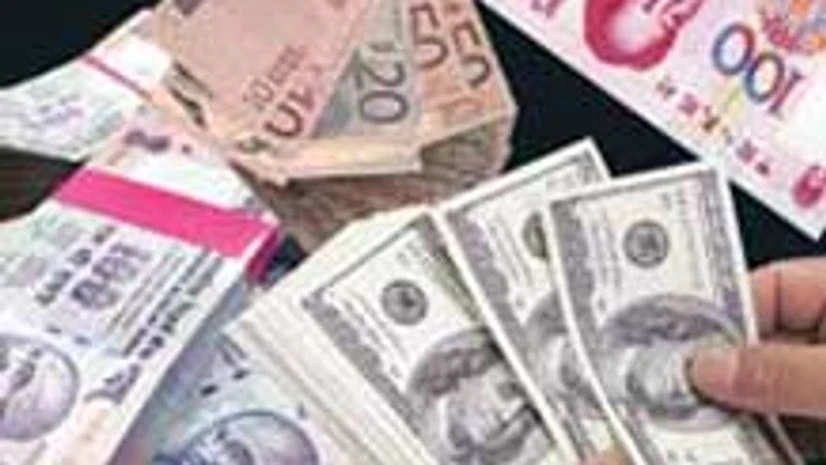Asian currencies completed a weekly gain, led by the won's advance to a five-year high, as data signaled a continued recovery in the region's economies and on bets US borrowing costs will remain low.
South Korea reported its March current-account surplus was the biggest in five months, Taiwan's gross domestic product growth beat forecasts and China's manufacturing rose in April from the previous month, figures showed this week. The Federal Reserve said April 30 it's likely to keep the benchmark US interest rate close to zero for a "considerable time" after its stimulus program ends, and a separate report showed the world's largest economy barely expanded last quarter.
"The market's in a bit of a sweet spot where the data's good but not good enough to really elicit an aggressive move higher in US interest rates," said Jonathan Cavenagh, a currency strategist at Westpac Banking Corp in Singapore. "Better data has been a secondary factor, although that's probably played out more for markets like South Korea."
Also Read
The Bloomberg-JPMorgan Asia Dollar Index, which tracks the region's 10 most-active currencies excluding the yen, climbed 0.2 per cent from April 25 to 115.35 yesterday. South Korea's won strengthened 1.1 per cent to 1,030.33 per dollar, according to data compiled by Bloomberg. India's rupee gained 0.8 per cent to 60.1625 and Taiwan's dollar appreciated 0.4 per cent to NT$30.212.
Most Asian markets were shut on May 1 for May Day. South Korea's financial markets will be shut on May 5 and 6 for local holidays.
US growth "has picked up recently" and policy makers will keep reducing the pace of bond purchases, the Federal Open Market Committee said in Washington after its April 29-30 meeting. The Fed pared its monthly asset buying to $45 billion.
The US economy grew at a 0.1 per cent annualised rate in the first quarter, below the median estimate of economists for a 1.2 per cent gain and the 2.6 per cent expansion recorded in the previous three months, according to an April 30 report.
American employers added 288,000 jobs last month, compared with a revised 203,000 new positions in March, according to data released yesterday.
In South Korea, the won rallied to 1029.96 on April 30, the strongest level since August 2008, after the nation's current-account surplus reached $7.35 billion in March.
The nation's trade excess widened to $4.46 billion in April, a May 1 report showed, exceeding the median estimate of economists for a $4.3 billion surplus. The government is closely watching the effect of the won's rise on overseas shipments, the trade ministry said in a statement on May 1.
China Manufacturing
Taiwan's economy expanded 3.04 percent in the first quarter from a year earlier, official data showed this week, compared with the 3 percent median forecast in a Bloomberg survey.
The yuan fell 0.1 percent from April 25 to 6.2593 on April 30. China's manufacturing Purchasing Managers' Index was 50.4 last month, compared with a reading of 50.3 in March and the 50.5 median estimate of analysts in a Bloomberg survey, a May 1 report showed. A level above 50 signals expansion.
A PMI of China's factory output from HSBC Holdings Plc had contracted for a fourth month in April, according to a preliminary reading on April 23, prompting concern that economic growth was slowing sharply.
"We've had slightly better data out of Asia," said Callum Henderson, Standard Chartered Plc's global head of foreign-exchange research in Singapore. "The China manufacturing PMI was better month-on-month albeit modestly. Clearly talk of a hard landing is overdone."
Elsewhere in Asia, the Philippine peso rose 0.3 percent this week to 44.515 per dollar. Indonesia's rupiah strengthened 0.4 percent to 11,523, Malaysia's ringgit gained 0.1 percent to 3.2657 and Vietnam's dong advanced 0.08 percent to 21,083. Thailand's baht was the only decliner, dropping 0.5 percent to 32.403.

)
